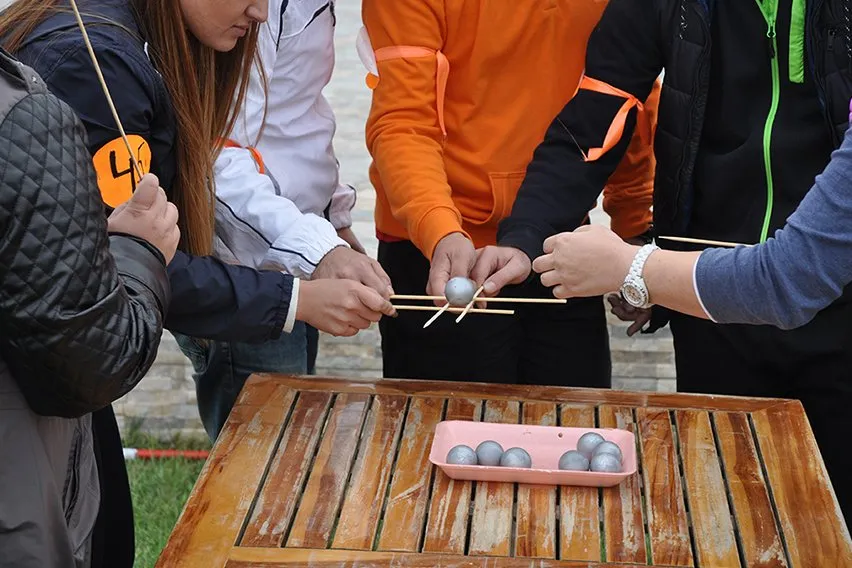Identifying Engaging Team Structure Activities That Promote Problem-Solving Abilities and Innovative Believing Among Associates
In today's rapidly progressing workplace, cultivating problem-solving skills and imaginative thinking through team-building tasks has actually ended up being necessary for business success. Exploring these inquiries can illuminate paths toward a much more dynamic group atmosphere.
Recognizing Team Structure Advantages

In addition, group structure serves to enhance social partnerships amongst associates, which is critical for efficient communication. When staff member develop trust and rapport, they are most likely to share details honestly and look for aid when needed. This synergy not only enhances private performance yet also boosts total group efficiency.
In addition, group building activities can dramatically increase spirits and inspiration. Workers who join engaging experiences really feel much more linked to their organization and are most likely to show increased commitment and productivity. A motivated workforce is much better outfitted to take on issues artistically and effectively.
Ultimately, comprehending the benefits of group structure is essential for companies aiming to improve analytical abilities. By purchasing these tasks, organizations can develop a more natural, cutting-edge, and durable labor force that is prepared to satisfy the needs of a dynamic service atmosphere.
Features of Reliable Activities
Effective group structure activities share numerous vital features that improve their efficiency in establishing analytic skills. Firstly, they must promote collaboration among employee, motivating open communication and cumulative brainstorming. This joint environment allows people to take advantage of diverse perspectives, which is important for cutting-edge analytical.
Secondly, efficient tasks are created to be challenging yet possible, pressing participants to think critically and creatively. These tasks ought to need teams to navigate barriers, analyze information, and create calculated services within a specified timeframe.
An additional important characteristic is the element of reflection (Orlando team building activities). Activities that include debriefing sessions make it possible for individuals to evaluate their approaches, pick up from successes and failings, and use these understandings to future challenges
Furthermore, successful tasks often incorporate real-world scenarios pertinent to the group's work context. This not only boosts interaction however also makes sure that abilities developed during the task are transferable to everyday tasks.
Imaginative Problem-Solving Exercises
Imaginative problem-solving exercises play a pivotal role in boosting a group's ability to take on intricate challenges. These tasks cultivate an atmosphere where staff member can think outside the box, urging innovative services with cooperation and varied point of views.
One reliable workout is the "Reverse Thinking" strategy, where participants identify prospective problems or barriers associated with a task. By concentrating on what could fail, teams can develop approaches to minimize these issues and stimulate creative thinking. One more valuable exercise is the "Mind Mapping" technique, which allows team members to aesthetically arrange their ideas and concepts around a main style, facilitating connections and understandings that may not arise via conventional brainstorming.

In addition, the "Six Believing Hats" method urges individuals to approach issues from various perspectives, such as emotional, analytical, and imaginative viewpoints. This structured technique assists teams explore a selection of angles, leading to extensive solutions.
Incorporating these innovative analytical workouts into team-building activities not just improves cognitive adaptability but additionally enhances interpersonal relationships, inevitably contributing to a much more natural and innovative group dynamic. Such workouts are important for cultivating a society of imagination and adaptability in the office.
Collaborative Difficulties for Teams
Countless collaborative difficulties can considerably improve a group's analytic capacities while promoting unity and interaction. These tasks require individuals to involve in cumulative thinking, promoting an environment where varied viewpoints can be shared and valued.

Additionally, team scavenger pursues can be designed to incorporate specific problem-solving tasks that call for critical reasoning and collaboration. By participating in such challenges, team participants discover to navigate disputes, develop count on, and value each other's toughness. Orlando team building activities. Eventually, collective obstacles contribute in cultivating a cohesive group dynamic that prospers on advancement and shared success
Gauging Success and End Results
To effectively gauge the success of my link team-building activities aimed at improving analytical skills, it is vital to establish clear metrics and desired outcomes. This process starts with specifying particular purposes, such as boosted collaboration, increased imagination, and boosted essential reasoning amongst staff member. By articulating these objectives, companies can tailor tasks that align with their vision.
Measurable actions, such as pre- and post-activity surveys, can provide valuable understandings right into participants' assumptions of their analytic abilities. In addition, tracking efficiency metrics-- such as job conclusion prices or the efficiency of services developed during team-building exercises-- can show the impact of these activities on general productivity.
Qualitative assessments, including individual feedback and observational researches, can better improve the evaluation process. Promoting seminars post-activity permits teams to reflect on their experiences, promoting an atmosphere of continuous renovation.
Eventually, gauging success is not simply about assessing immediate end results however additionally keeping track of lasting behavioral modifications within teams. By constantly examining the performance of team-building campaigns, companies can improve their technique, making sure ongoing development of problem-solving skills and imaginative thinking abilities among associates.
Conclusion
In final thought, picking interesting team-building tasks that promote analytical skills and creativity is necessary for boosting partnership among colleagues. Reliable workouts, such as Reverse Brainstorming and Escape Room challenges, not only stimulate important reasoning yet also promote a society of Web Site creativity. By including real-world situations look at this website and reflective debriefing sessions, teams can strengthen social connections and cultivate a resilient labor force, inevitably adding to cumulative success and boosted organizational morale.
Reliable team structure fosters cooperation and enhances analytical abilities within a company.In addition, team building tasks can substantially increase spirits and motivation.Effective group structure tasks share a number of key qualities that boost their efficiency in creating analytic abilities. By concentrating on what can go incorrect, teams can design strategies to alleviate these problems and promote creative reasoning.Additionally, team scavenger pursues can be developed to include particular analytic jobs that require calculated thinking and collaboration.